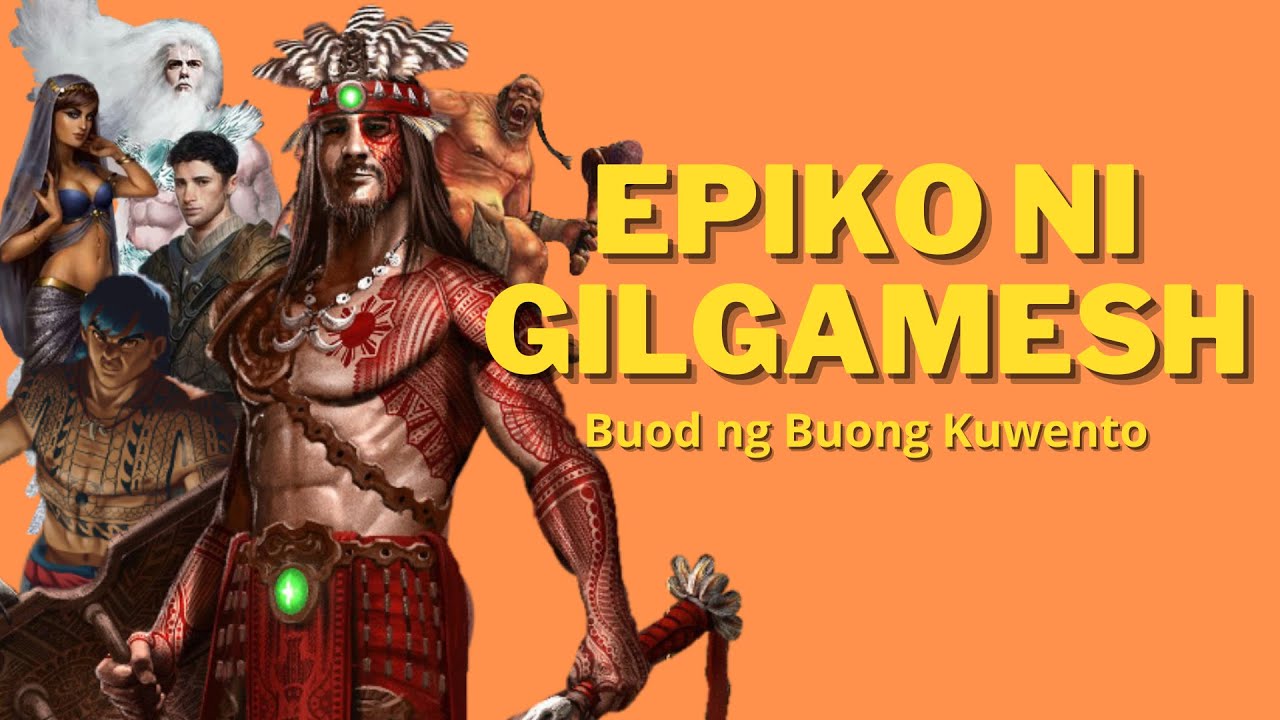EPIKO NI GILGAMESH (Group 2) 10-Emerald
Summary
TLDRThe script is a dramatic retelling of the ancient epic of Gilgamesh, portraying him as a demigod with immense power but also arrogance. It sets the stage for a confrontation between Gilgamesh and Enkidu, a wild man created by the gods to challenge Gilgamesh's tyranny. The dialogue captures their intense rivalry, with Gilgamesh's pride and Enkidu's divine mission to humble him. The script is filled with action, as the two powerful beings engage in a battle that tests their strength and will.
Takeaways
- 😀 The character Gilgamesh is depicted as half-human and half-divine, embodying both mortal and immortal qualities.
- 💪 Gilgamesh is described as strong, courageous, and powerful, showcasing his physical prowess and might.
- 👑 Despite his strengths, Gilgamesh is also portrayed as arrogant and abusive, highlighting a flaw in his character.
- 🗡️ The script suggests a challenge to Gilgamesh's authority, with someone questioning his power and seeking to oppose him.
- 🙏 There is a mention of prayers being answered, indicating a divine intervention or a response to the pleas of the people.
- 🌪️ A character named Enkidu is introduced, who is said to be created by the gods to rival Gilgamesh in strength.
- 🤝 Enkidu is presented as a potential equal to Gilgamesh, raising the stakes for a potential conflict between the two.
- 🔥 The dialogue between Gilgamesh and Enkidu is filled with bravado and defiance, setting the stage for a showdown.
- 🏰 The script implies a setting of ancient times, with kings and gods playing significant roles in the narrative.
- 🎭 The use of music and sound effects suggests a dramatic and possibly theatrical or cinematic presentation of the story.
Q & A
Who is Gilgamesh in the script?
-Gilgamesh is described as half-human, half-god, who is mighty, strong, and powerful, but also arrogant and abusive in his power.
What is the main issue with Gilgamesh's character as portrayed in the script?
-The main issue is his arrogance and abuse of power, which leads to the challenge of finding someone who can stand up to him.
Who is Enkidu and what is his role in the script?
-Enkidu is presented as a wild man, created by the gods to be a match for Gilgamesh in strength. He is intended to be a counterbalance to Gilgamesh's arrogance.
What is the purpose of Enkidu's creation according to the script?
-Enkidu is created by the gods to challenge Gilgamesh and to fight against his arrogance and abuse of power.
How does Enkidu initially react to Gilgamesh's challenge?
-Enkidu is defiant and challenges Gilgamesh back, questioning his strength and ability to defeat him.
What is the significance of the phrase 'I am strong enough' in the script?
-The phrase 'I am strong enough' signifies Enkidu's confidence in his own strength and his readiness to confront Gilgamesh.
What does Gilgamesh's arrogance lead to in the narrative?
-Gilgamesh's arrogance leads to a confrontation with Enkidu, who is created to be his equal in strength.
What is the underlying message about power and arrogance in the script?
-The script conveys the message that power should not be abused and that arrogance can lead to downfall, as it prompts the creation of Enkidu to challenge Gilgamesh.
How does the script suggest that Gilgamesh should change his behavior?
-The script implies that Gilgamesh should not be overly arrogant and should recognize that there are others, like Enkidu, who can match his strength.
What is the outcome of the confrontation between Gilgamesh and Enkidu?
-The script does not explicitly state the outcome of the confrontation, but it sets up a narrative where Enkidu is created to challenge Gilgamesh's dominance.
What is the role of the gods in the creation of Enkidu and the conflict with Gilgamesh?
-The gods play a pivotal role by creating Enkidu to be a match for Gilgamesh, indicating their disapproval of Gilgamesh's behavior and their desire to restore balance.
Outlines

此内容仅限付费用户访问。 请升级后访问。
立即升级Mindmap

此内容仅限付费用户访问。 请升级后访问。
立即升级Keywords

此内容仅限付费用户访问。 请升级后访问。
立即升级Highlights

此内容仅限付费用户访问。 请升级后访问。
立即升级Transcripts

此内容仅限付费用户访问。 请升级后访问。
立即升级浏览更多相关视频

The Epic of Gilgamesh - Sumerian Mythology

FATE: GILGAMESH, PODERES EXPLICADOS DE UM DOS SERVOS MAIS PODEROSOS! | HISTÓRIA DO REI DOS HERÓIS

Gilgamesh was a Giant half god or semi divine 18 feet 5 meters tall Sumerian King

Epiko ni Gilgamesh (Buod ng Buong Kuwento)

The epic of Gilgamesh, the king who tried to conquer death - Soraya Field Fiorio

Mula sa Epiko ni Gilgamesh | Baitang 10 | Salin-buod sa Filipino ni Cristina S. Choco
5.0 / 5 (0 votes)
